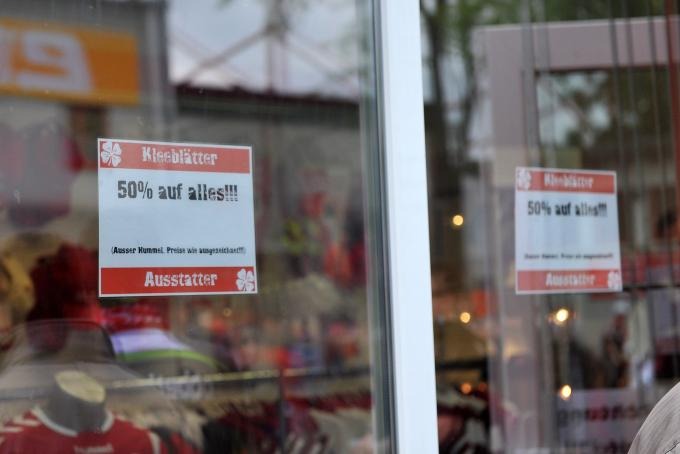Under Georg Mewes, SV Hönnepel-Niedermörmter developed into an unpleasant cup opponent. In 2012, Rot-Weiß Oberhausen failed, then in 2013 Hö.-Nie. toppled Rot-Weiss Essen.
Georg “Schorsch” Mewes took over the reins at SV Hönnepel-Niedermörmter in 2010. In 2012, two years later, the until then relatively unknown Niederrheinligist was to make high waves for the first time. “That was an unbelievable game,” Mewes still remembers the semi-final in the Lower Rhine Cup at Rot-Weiß Oberhausen.
“Oberhausen played in the 3rd division on Saturday and we only played on Sunday against Wülfrath (3:1 victory, editor’s note) in continuous rain on very deep ground. Then on Tuesday we had to play in the cup,” as the football-mad 74-year-old remembers very well.
The coach at RWO at the time was former national player Mario Basler. “I met him and he first asked me what our club was called. He couldn’t pronounce it at all,” laughs Mewes.
Rot-Weiss Essen had already qualified for the final by beating KFC Uerdingen 5-2 on penalties. “In the stands, they had already decided where they would host the game between RWO and Rot-Weiss Essen. The board members were already making plans. And we were laughing our heads off,” explains Mewes. Because Basler was soon to know exactly who he was facing in the semi-finals.
Then I told Basler: ‘Now you know who we are’.
Georg Mewes
Hö.-Nie. not only saved themselves against the cloverleaf with a 1-1 draw in extra time, but even took the lead there, which Marvin Ellmann was able to equalise for RWO shortly before the end (2:2). “Then, although we were already so knackered, we also had the concentration in the penalty shoot-out. We cleared all five,” Mewes looks back on the 7:5. “Then I told the Basler: ‘Now you know who we are’.”
For the Oberhausen team, on the other hand, which had already been relegated to the third division just one year after its relegation from the second division, the situation was becoming increasingly uncomfortable. Already during the game, supporters had gathered behind the RWO bench and expressed their displeasure, and scuffles broke out.
Hö.-Nie. took advantage of RWO’s insecurities and shot themselves into the final. “I’m from Oberhausen, so we sat there until one or two o’clock and celebrated with the RWO fans. The Oberhausen fans had to run across the field towards the canal because they were having trouble with the fans,” recalls Mewes.
Last floodlit match at Georg Melches Stadium
In the final, the underdogs then met Rot-Weiss Essen in front of 10,000 spectators at the Georg Melches Stadium. “We were unlucky to lose that one. We had a shot against the post and a shot against the crossbar in the last few minutes. The goalkeeper also made an outstanding save,” said the current sporting director of Oberliga club 1. FC Kleve, looking back on the close 2:3. “And Timo Brauer – I tell him that every time I meet him – he destroyed us. He alone scored all three goals. “
However, Mewes has positive memories of the game. “Especially because it was the last game in the Georg Melches Stadium under floodlights. That was actually even more important than the result for both teams. The old stadium of Rot-Weiss Essen is like the Glückauf-Kampfbahn for Schalke.” The following Saturday, RWE met Fortuna Cologne once again (1-1). A legends game was then followed by demolition.

However, revenge was to follow in the following year. This time RWE had to play Hö.-Nie. away in the quarter-finals. “They also thought we’d beat them. But then they had to play on our field. They didn’t know that. They turned up their noses when they arrived.”
The hosts, meanwhile playing in the newly introduced Oberliga Niederrhein, were highly motivated – and won 2-1 against the regional league team. “Mikolajczak hit a free kick from 40 metres,” recalls Mewes.
These are pictures that stick in your mind, when they went around with the water boxes and had discussions,” Mewes remembers a conversation between the then RWE coach Waldemar Wrobel, the team manager and later sports director Damian Jamro and Dr. Michael Welling, who was chairman of the board at the time. “They must have been standing at the centre circle for half an hour after the final whistle. They couldn’t believe it. And one of our players ran out and put three crates of beer on the halfway line.”
Once again, however, the title was not to be won. This time it was all over in the semi-final against the eventual winners, Sportfreunde Baumberg (0:1).
